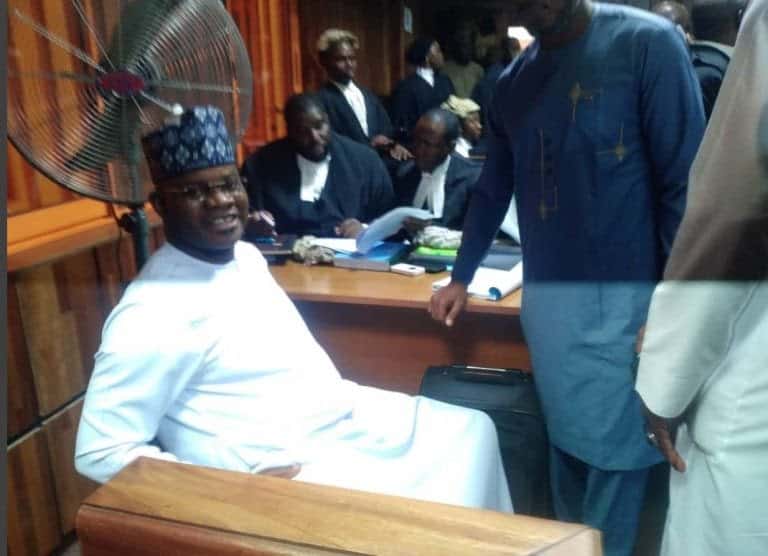
Court Denies EFCC’s Request to Arraign Former Kogi Governor Yahaya Bello Without Legal Representation
The Federal High Court in Abuja has ruled against the Economic and Financial Crimes Commission (EFCC) in its request to arraign Alhaji Yahaya Bello, the immediate past Governor of Kogi State, without his legal representation. Bello, who is facing a 19-count charge related to his alleged involvement in a massive N80.2 billion fraud, was expected to enter his plea before Justice Emeka Nwite. However, when the case was called, none of the lawyers representing the former governor were present in the courtroom, leading to a significant delay in the legal proceedings.
EFCC’s counsel, Mr. Kemi Pinheiro, SAN, attempted to argue that the arraignment could proceed without the presence of Bello’s lawyers, stating that the law only requires the physical presence of the defendant, not his legal counsel, for the arraignment to take place. Despite this argument, Justice Nwite was not convinced by the prosecution’s reasoning.
In his ruling, Justice Nwite emphasized that it would be inappropriate to compel Bello to enter a plea when his legal team was not present. He pointed out that the absence of the defense counsel was a clear violation of the right to fair hearing. The judge remarked that it would have been a different scenario if Bello did not have legal representation. He further stressed that it was crucial to respect the principles of justice and fairness, which include ensuring that the defense team is adequately notified about the case and has the opportunity to participate in the proceedings.
Justice Nwite explained that the defendant’s legal team had not been informed that the case would be heard on that specific Friday, making it unjust to proceed with the arraignment in their absence. “It is therefore my view that the interest of justice will be met by putting the defence counsel on notice about this abridgement of time,” the judge stated. He added that proceeding without the defense lawyers would not only be a breach of procedural fairness but could also undermine the integrity of the court’s process.
In light of these concerns, the judge ruled that the arraignment would be postponed, and a hearing notice would be issued to Bello’s legal team to ensure that they are informed about the new date for proceedings. The case was adjourned to December 13, 2024, when the defendant will be expected to enter his plea in the presence of his legal representatives.
Furthermore, Justice Nwite ordered that Bello remain in the custody of the EFCC until the next adjourned date, as the commission continues its investigation into the alleged fraudulent activities that occurred during the former governor’s tenure in office. The charges against Bello include claims of financial mismanagement, embezzlement, and abuse of office, all of which are said to involve the large-scale diversion of state funds.
The case has attracted significant attention due to the scale of the alleged fraud, with many observers noting the implications it could have for anti-corruption efforts in Nigeria. As the former governor faces the legal process, the EFCC is determined to hold him accountable for his actions in office, which it claims resulted in substantial losses to the state.
Bello’s legal team has yet to comment on the latest development, but the delay in his arraignment highlights the ongoing challenges in the Nigerian legal system, especially in high-profile cases involving politicians. Legal experts have weighed in on the matter, stressing the importance of ensuring that all parties involved in such cases are given a fair opportunity to present their case.
The next court date in December will be a critical moment in the ongoing legal battle, and many are watching closely to see whether the case will proceed smoothly or face further delays. Regardless of the outcome, the proceedings are expected to have far-reaching consequences, not just for Bello, but for the broader fight against corruption in Nigeria.





